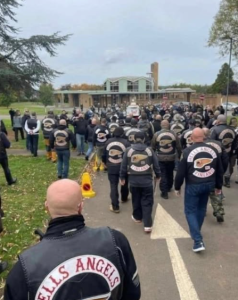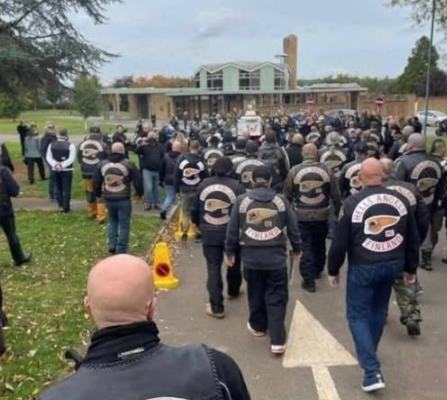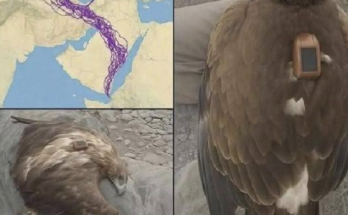The sound of motorcycles rolling down our quiet suburban street was enough to turn every curtain into a pair of suspicious eyes. Engines roared, exhaust rattled the still morning air, and one by one, chrome-plated beasts lined the curb outside my house. Helmets came off, leather jackets creaked as heavy boots hit the ground, and a group of men and women—tattoos, scars, bandanas—gathered in my front yard like a scene from a movie.
I had called them.
And every neighbor, peeking from behind their blinds, was about to witness why.
For months, my son, Ethan, had been coming home with bruises that weren’t from soccer practice. He was only twelve, small for his age, and an easy target for the bigger kids at his middle school. The bullying escalated from cruel words to shoves, then to full-on assaults. His backpack had been thrown in the mud, his homework ripped to shreds, his glasses broken twice.
The school did what schools always seem to do—send polite emails, call for “dialogues,” and hand out meaningless warnings. The bullies only laughed harder. Ethan began retreating into himself. My bright, energetic boy no longer wanted to go outside. He ate dinner silently, shoulders slumped, eyes vacant. I had tried everything—teachers, principals, even other parents—but nothing stopped it.
One night, after another round of tears at bedtime, I sat at my kitchen table scrolling through my phone, desperate for help. That’s when I stumbled upon a biker group known as the Guardians of the Lost. They weren’t a gang—they were an organization of bikers who volunteered to stand up for bullied children, showing them they weren’t alone. Their motto was simple: “No child should ever feel small.”
With hesitation, I reached out. To my surprise, they answered. And that’s how, on a Saturday morning, half the neighborhood found themselves staring at a convoy of bikers in my driveway.
Ethan peeked through the window and gasped.
“Mom… who are they?”
“They’re friends,” I told him gently. “They came for you.”
When we stepped outside, the largest of the bikers—a bear of a man with a braided beard and arms thicker than tree trunks—knelt down to Ethan’s level. His leather vest read “Tank.”
“You Ethan?” he asked in a gravelly voice.
My son nodded nervously.
Tank grinned. “Heard you’ve been dealing with some punks. Well, guess what? You got family now. And family’s got your back.”
One by one, the bikers introduced themselves. There was “Mama Bear,” a tough woman with soft eyes who hugged Ethan like he was her own. “Spikes,” a wiry man with a mischievous grin who gave Ethan a leather wristband. And “Hawk,” who crouched low and said, “Kid, you don’t ever have to walk with your head down again. Not with us around.”
Ethan’s eyes lit up in a way I hadn’t seen in months. He stood taller, shoulders back, as though some invisible weight had been lifted.
But the real shock came later that afternoon.
The bikers asked Ethan if he wanted to go for a short ride—not on the highways, just around the block. He hesitated, then nodded eagerly. Tank lifted him onto the back of his Harley, strapping a tiny helmet over his head.
As they cruised slowly down the street, the rest of the bikers followed in formation. Neighbors spilled out onto their lawns, mouths open in disbelief. There was Ethan, the boy everyone had pitied, riding like a prince surrounded by a royal guard of steel and leather.
And that’s when it happened.
At the corner of the street stood three boys—the same bullies who had tormented him at school. They froze as the bikes approached. The roar of engines drowned out the smirks on their faces, replacing them with wide-eyed shock. Tank slowed down, stopping right in front of them.
Ethan climbed off the bike, his knees trembling. For a moment, I worried he’d shrink back. But then Spikes leaned down and whispered, “Show ’em who you are, kid.”
Ethan stepped forward. “I’m not scared of you anymore.”
The bullies exchanged nervous glances. The bikers didn’t touch them, didn’t threaten them—just stood there silently, a wall of muscle and chrome. But the message was clear. For once, the bullies were the ones shrinking.
The neighborhood gasped. Parents who had whispered behind closed doors suddenly understood. This wasn’t intimidation—it was protection.
From that day forward, everything changed.
Word spread fast. The bullies kept their distance, suddenly uninterested in targeting Ethan. At school, kids who had ignored him before now looked at him differently. And Ethan? He began smiling again. He joined a robotics club, made friends, and even volunteered to speak at an anti-bullying assembly—something I never imagined he’d have the courage to do.
The bikers didn’t disappear after that first visit. They checked in, sent birthday cards, and even showed up at one of Ethan’s soccer games, cheering louder than anyone else. My son’s confidence soared knowing he wasn’t alone.
As for the neighborhood, well… it was never the same again. At first, some parents whispered about “dangerous bikers” bringing trouble. But when they saw the change in Ethan—when they saw how kindness could wear leather and ride a Harley—they softened. Some even approached the Guardians, asking how they could help other kids in need.
The true shock wasn’t the sight of roaring bikes or leather vests. It was the realization that heroes don’t always look the way we expect. Sometimes they arrive on two wheels, with tattoos and scars, carrying the weight of their own battles—and a fierce determination to make sure no child fights alone.
Ethan still talks about that day, the day the Guardians of the Lost showed up for him. He keeps the wristband Spikes gave him by his bed and says it reminds him to stay strong.
And me? I’ll never forget the sight of my boy, standing tall before his bullies, with a family of unlikely angels behind him.
Because in the end, the real shock wasn’t for the neighborhood. It was for Ethan. The shock of discovering he wasn’t powerless. The shock of finding his voice. The shock of realizing—finally—that he was never alone.


